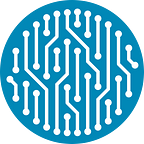Artificial Intelligence Defined: Its History, Future, and Need for Human Intelligence
Artificial intelligence is changing our lives and the way we do business; however, it raises strong concerns pertaining to how it would fail without humans. How true is this?
Artificial Intelligence (AI) is a broad computer science branch concerned with building smart machines that perform tasks bordering on human intelligence. AI’s deep learning and machine learning advancements have created a paradigm shift in multiple industries such as in healthcare, education, entertainment, manufacturing, logistics, among others.
Organizations are looking towards AI in a bid to improve productivity and efficiency, especially since we are dealing with a hybrid work environment and modern tight labor market. This not only impacts our professional lives but also our personal lives by relying on AI for personalized experiences with the proliferation of smart assistants like Siri and Alexa. But even with these advancements in technology, AI still relies on human intervention to perform efficiently.
Before looking at the role human intelligence plays in AI, let’s look at the history of AI and where it is headed.
AI: How it Started and Where it’s Headed
Almost a decade after the Allied forces won World War II, the course of history was changed by a simple question asked by mathematician, Alan Turing,: ‘Can machines think?’ It is from his 1950 paper ‘Computing Machinery and Intelligence,’ and the Turing Test that he built the fundamental goals and vision of artificial intelligence. This means that the AI that we enjoy today is on a mission to answer Turing’s question in the affirmative.
There were multiple obstacles standing in the way between Turing’s era and what we enjoy today, the biggest one being the lack of computational power to make any substantial advancements. A boost of funding and an expansion of the algorithmic toolkit in the 1980s reignited AI, and finally deep learning techniques came into focus allowing computers to learn from experience. From this came a positive domino effect and the tech world achieved many landmark goals of AI such as IBM’s Deep Blue chess playing computer, the development of speech recognition software, and robots that could recognize and display emotions.
Without a doubt, AI is a revolutionary field of computer science that has shown its might in leading emerging technologies like robotics, IoT, and big data. It goes to show that the coming years might rely heavily on AI as its leading technological innovator.
The future of AI looks bright considering the massive advancements in computing technology we have experienced in the past decade alone. It is projected to have a lasting impact on almost all industries — with most businesses nowadays relying on AI for day-to-day running. AI turned from a fantasy to reality and we will continue to see its influence permeate deeper into other industries in the foreseeable future.
Why AI Needs Human Intervention
At AIWORK, we merge AI with blockchain technology in the video content realm. Our blockchain network facilitates a marketplace of crowdsourced AI Human Experts to help create, verify and validate AI data sets that make AI smarter. From our definition, you get that in as much as we are for AI, human experts are a necessity in this field. Yes, AI helps us in the normalized classification and tagging of video at scale, but it is not perfect and requires human intelligence for verification, validation, and correction as well as training to teach it patterns of faces, objects, scenes, and many more.
AI algorithms would fail without human intelligence because in as much as AI can be effective at analyzing specific questions and doing specific jobs, a change in circumstance or the emergence of an unexpected event throws the algorithm off. This is why human intervention is a key part of the business’s decision-making process. The future of AI dictates that we have a human decision maker assisted by AI technologies and not businesses solely run by AI algorithms without human intervention.
AI still needs human intervention because the tech works best when it is monitored and augmented by people. In the case of AIWORK where we might come up with advanced models of conversational AI in the future, collaboration with real people possessing expertise, ingenuity, and empathy is a requirement as it leads to more positive outcomes from the intelligent video content systems.
Summing it Up
AI has come a long way from the days of Turing to the advanced technologies like self-driving cars we see today. As the tech keeps improving from building machines that are intelligent to an interdisciplinary science that touches on different industries like entertainment, media, healthcare, among others we can only speculate on the advancements to expect in machine learning and deep learning. Despite the advancements, AI technology invariably needs human intelligence since it must be developed and trained by humans to perform precise and specific tasks. With human intervention, AI can easily define the questions it is tasked to answer and the humans can help to interpret the output of this tech.
Follow our socials to stay updated on matters of AI, Blockchain, and the advancements we are bringing to the video content space:
